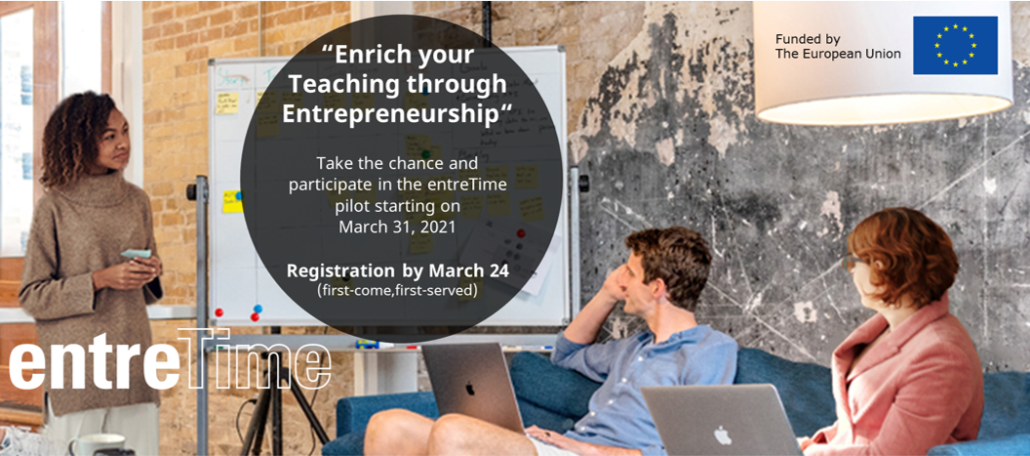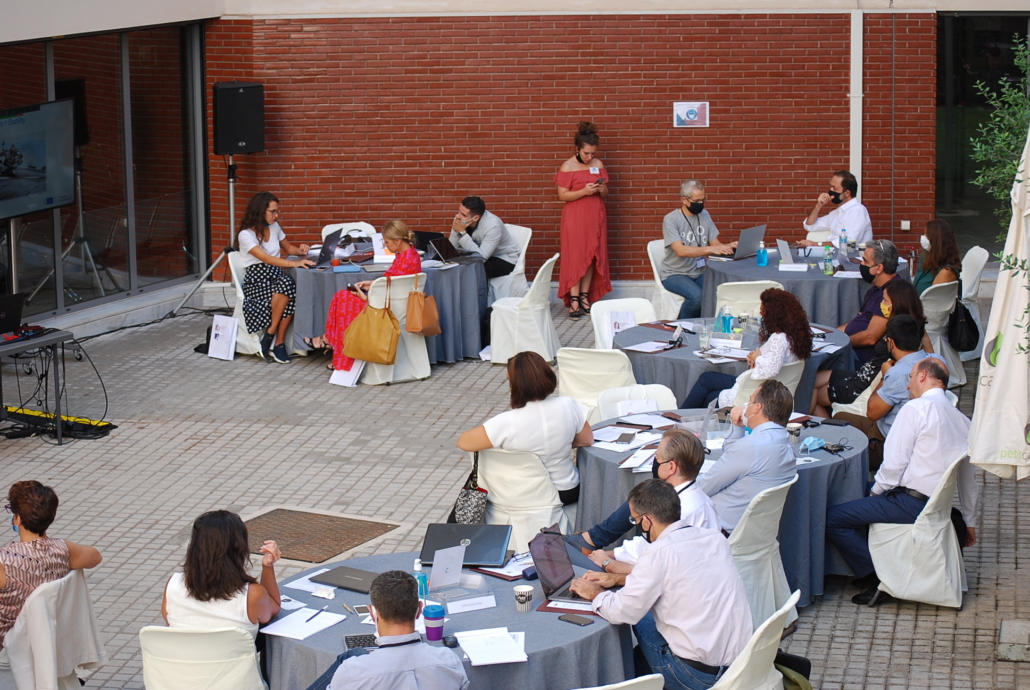The second entreTime training programme
pilot was conducted between March 31st and June 16th. It was an exciting
adventure that gathered participants from around the world working together to
strengthen their competencies to promote a more entrepreneurial higher
education and to reflect on innovative strategies to the challenges of
universities.
The pilot was held by four European
Institutions namely, Hochschule München University of Applied Sciences, in
Germany, Tampere University of Applied Sciences in Finland, Swansea University,
in Wales (UK), Junior Achievement Bulgaria, in Bulgaria. It was a joint effort
with international and interdisciplinary teams and coaches and an excellent
opportunity for meaningful networking.
Starting with the mote of “teaching
through entrepreneurship” the training programme brought together more than 15
international experts, 9 coaches from the four countries who hosted the
programme and diverse learning and interactive on platforms, in a true
interactive blended learning approach.
The pandemic context set the opportunity
to have participants from around the world, being represented by 19 countries,
from India, Egypt and Chile to Italy, Portugal or Poland, apart from the
participants from the hosting countries. The experience was enriched by the
diversity of the scientific and academic backgrounds, ages, and years of
experience.
The entreTime curriculum offered the
participants an immersive journey through distinct themes related to the topic,
webinars, workshops, and a blended learning phase with interactive sessions,
complementing the shared knowledge during the sessions.
A total of 39 participants finished the
programme with active participation throughout the program, the team
challenges, entrepreneurial teaching project development, micro-challenges,
MOOCs, attending to the online events and being engaged in intense and
constructive networking. The overall feedback was very encouraging, reinforcing
the relevance of the entrepreneurship of the demands for higher education
institutions and society’s challenges nowadays and particularly in the
future.It was an excellent test of the overall train-the-trainer programme and
reassurance of the model that entreTime is proposing.
To learn more and get inspiration from some participants https://entretime.sce.de/previous-pilot-programme/



